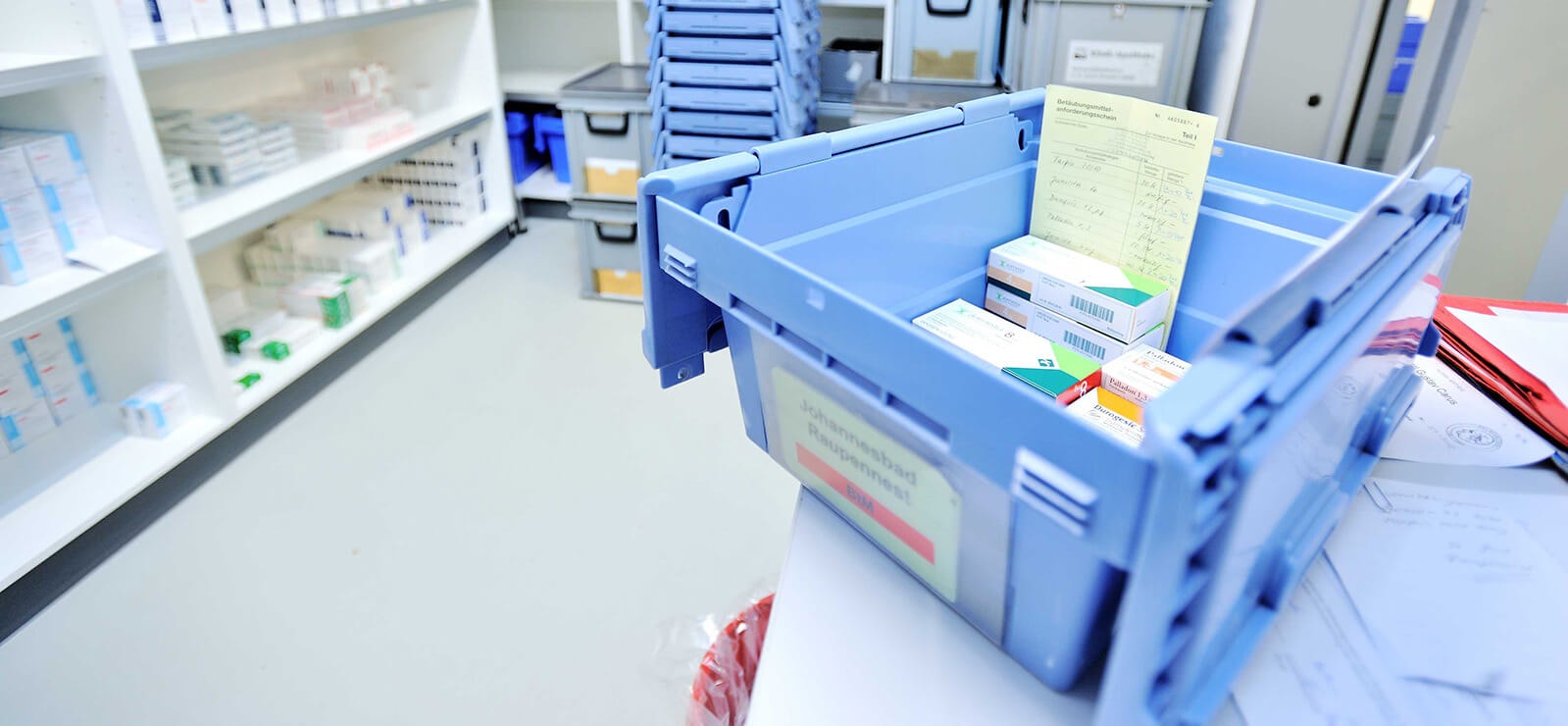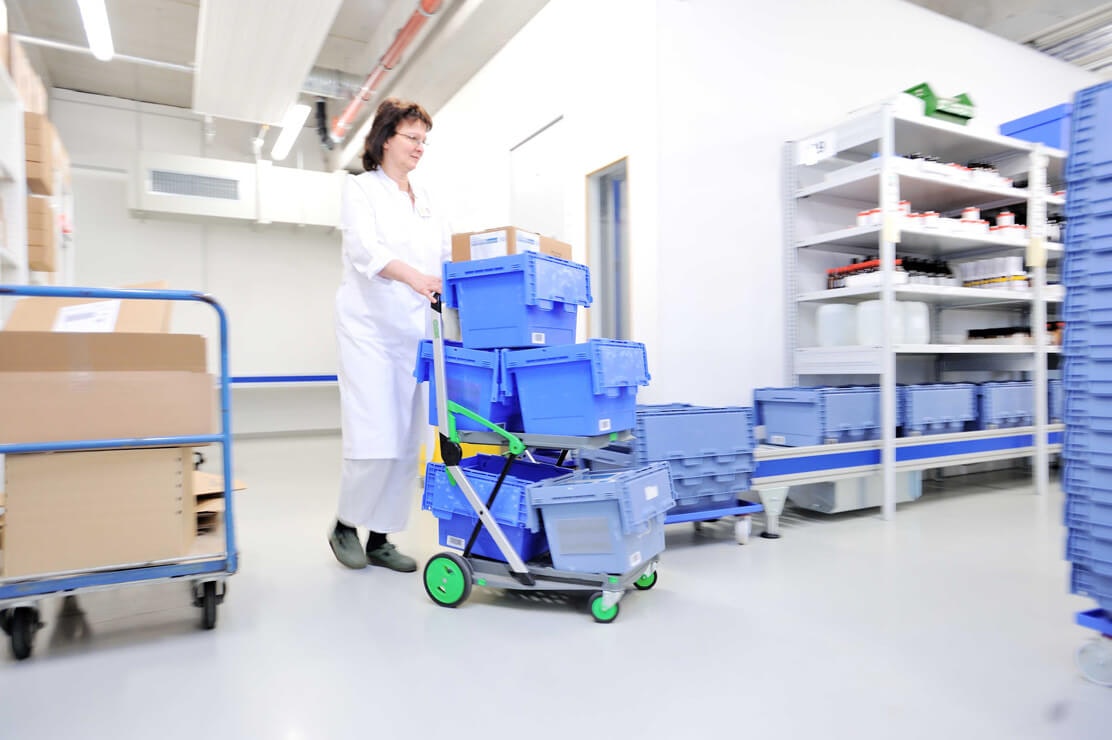Industry information
The health care sector comprises all facilities that maintain, promote and restore the health of the population and prevent diseases. In addition to hospitals and rehabilitation facilities, the sector also includes medical care in general and specialist practices, the pharmaceutical industry, medical technology, health tourism, wellness, the fitness industry and of course logistics service providers. For about two decades now, the healthcare sector has been in a state of upheaval: in addition to technological and health policy aspects, cultural, socio-demographic and economic change also play a decisive role. Today, health is much more than just curing diseases; it is a trend in life and values. Thanks to the information possibilities of the Internet, the patient or customer is increasingly given more choices and uses them. As a result, topics such as customer orientation, transparency and convenience are becoming increasingly important in the healthcare industry. Digitalization is also rapidly transforming the healthcare sector. New technologies such as advanced analytics, big data, artificial intelligence and machine learning are leading to new services and opportunities. These also include brain computer interfaces (interfaces between people and medical technology), networked operating rooms, assistance robots, 3D imaging in real time, health apps, and much more. With the entry of Internet giants such as Amazon, Alibaba, Apple, Samsung and Tencent into the healthcare sector, the boundaries of the industry are becoming increasingly blurred. Service providers and manufacturers in the healthcare industry must adapt their business models worldwide, as new regulations for medical devices have been created in the EU and China and Brexit and the US tax reform have a strong impact on the industry.
In 2017, the pharmaceutical industry in Germany produced pharmaceutical products worth 30.6 billion euros. According to the cost structure statistics of the Federal Statistical Office, 580 pharmaceutical companies were registered. In addition, 61 biotechnology companies are dedicated to drug development. In Germany, about 60,000 drugs are approved. 2000 of these are cold chain drugs and about 250 are cold chain drugs. They require appropriate handling during storage and transport. The Good Distribution Practice ensures control of the distribution chain and protection against counterfeit medicines. This is intended to maintain the quality and integrity of pharmaceuticals. Medicines that require refrigeration, such as insulins, may heat up above +8° C for a short time, whereas medicines that require refrigeration (e.g. TNF blockers for rheumatic patients) must always be stored within the prescribed temperature range of +2° C to +8° C. However, both groups of drugs must never be transported or stored below 0° C. Substances can freeze at temperatures below zero. Freezing or excessively warm temperatures can change the structure of drugs and test strips, which may lead to unforeseeable intolerances and side effects, but also to a complete loss of efficacy of the drug. Therefore, the pharmaceutical industry in particular requires reliable and fast logistics and intralogistics.
Trends
- E-commerce and online pharmacies are becoming increasingly popular. Online shipping and on-site orders at pharmacies require extremely fast logistics.
- Blurring of industry boundaries due to the entry of Internet giants such as Amazon, Alibaba, Apple, Samsung and Tencent into the healthcare sector.
- Hygienic storage, compliance with cold distribution chains, cleanliness and order in the warehouse are extremely important. Special cooling containers are required. Industrial trucks and storage technology must be resistant to cold.
- Protection against unauthorised access to goods must be ensured, for example, by robust containers with seals and barcodes.
- Digitalization leads to new technologies and services (health apps, trackers, etc.)
- The increasing age of the population leads to a demand for new services and products
- Clearly visible markings for identification of goods help to avoid errors
- Automation and digitalization are also advancing rapidly in the healthcare industry
Logistical requirements
To ensure that the pharmaceutical and healthcare industries can also meet the high demands of the future, manufacturing companies are increasingly relying on intelligent logistics solutions, e.g. in the areas of storage, replenishment, container and general cargo picking. Optimum access control to warehouse stocks or continuous refrigerated storage of medicines are equally important aspects. As almost everywhere, warehouses are becoming more and more automated to increase speed and throughput and reduce the error rate. In the healthcare industry, absolute precision is indispensable. For example, the tasks of pharmaceutical wholesalers include supplying pharmacies with the products of pharmaceutical manufacturers. The respective logistics division of the wholesalers must ensure very fast daily deliveries. This also requires large warehouses. Of course, pharmaceutical manufacturers also need very large warehouses. There are some special features for pharmaceutical warehouses. For example, the requirements of the product groups to be stored are very high in terms of temperature, storage conditions, cleanliness requirements or regarding the narcotics law in the pharmaceutical industry and must be observed throughout. For substances of different hazardous substance classes, degrees of toxicity and other properties, additional storage and fire compartments must be set up for each temperature range due to storage prohibitions. The number of storage areas can multiply as a result, resulting in changes to buildings, logistics and production processes.
It is also important to have insulated loading stations (dock levellers) so that the cold chain is not interrupted for medicines that have to be kept refrigerated. But one should also think of so-called conditioning chambers - in which goods that are too cold are heated or goods that are too warm are cooled. High-bay warehouses must be equipped with special air conditioning and ventilation systems to maintain the temperature. The use of industrial trucks in "ultra-low temperature areas" is also problematic. Constant reconditioning in warm areas must be considered.BITO offers the thermo-insulation set for the reusable container MB for the safe transport of drugs and vaccines. The set guarantees a temperature of two to eight degrees for at least twelve hours. This is ensured by an insert made of the foam Neopor, which enables high insulation values, as well as three cooling elements of the type Icecatch Solid Isolated. These are equipped with an integrated, hydrophobic insulation layer.Furthermore, BITO offers static and dynamic racking systems, single and multi-storey racking systems, storage, transport and order picking containers, especially for the healthcare industry.


